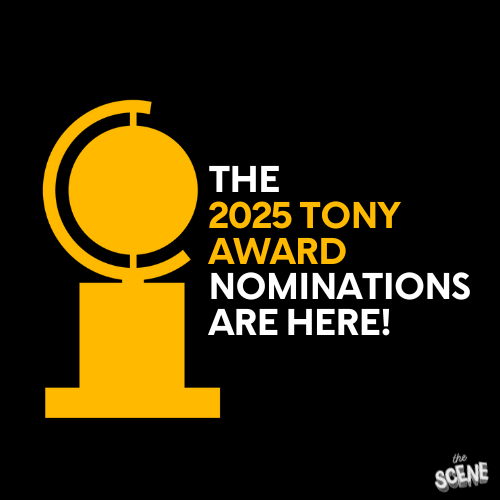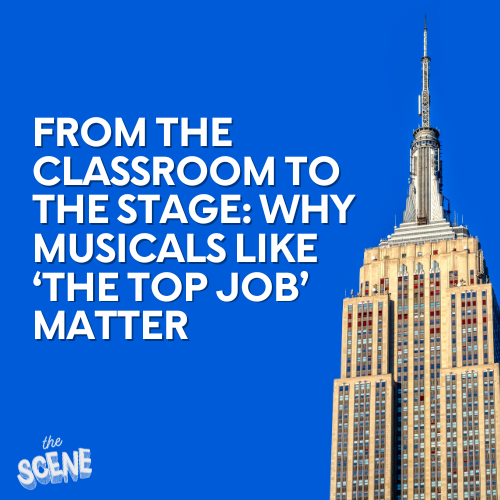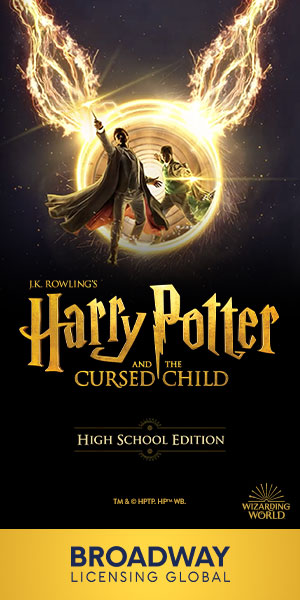For theatre educators, choosing a production can feel like a serious predicament. On the one hand, you want to provide Thespians with an opportunity to challenge themselves and explore complex source material. On the other, there’s the very real risk that a controversial choice can put your role and program in jeopardy.
Unfortunately, more educators than ever are facing this decision, leaving them with one important question: How do I prepare?
THE STATE OF CENSORSHIP IN SCHOOL THEATRE
According to the 2023 EdTA Play Survey, 85 percent of respondents reported being somewhat concerned about censorship, with another 67 percent saying the concerns over censorship were influencing their selections for the 2023-24 school year.
An additional 30 percent said they were aware of concerns about their choice of show, but only 6 percent were asked to switch to another title, with only 1 percent being affected by cancelations. However, depending on location, those metrics may soon rise as legislation and administrators take a more active approach.
Productions of shows including Indecent, The Addams Family, Marian, and The 25th Annual Putnam County Spelling Bee all faced cancellation in 2023 based on concerns over their material, which often covered sensitive topics including LGBTQ+ characters, suggestive material, dark themes, and adult language.
WHY ARE THESE PRODUCTIONS IMPORTANT?
Outside of concerns over censorship and a loss of creative control over programs, these situations fundamentally impact the role of theatre in schools.
“The whole concept and idea behind theatre is that it shines a mirror and allows us to have complex conversations around society, culture, structures of power, and ways that we interact with the world and each other,” says Jordan Stovall, Director of Outreach and Institutional Partnerships for Dramatists Guild of America.
- Adding roadblocks to educators means:
- Limited exposure to diverse perspectives, cultures, and topics.
- Reduction in students’ real-world preparedness and critical thinking.
- Preventing the forming of safe spaces for self-discovery, support, and discussion.
- Decreasing awareness of historical and societal issues within a community.
And the list can go on. The bottom line is censorship can have consequences beyond simply stopping a show from going on, which is why being prepared to defend a production choice is more important than ever.
“Obviously, this [tackling a controversial show] comes with a tall order of responsibility,” they say. “In order to have that conversation, it means that the educator should be prepared for the beginning, middle, and end of what it means to engage with that content.”

4 STEPS TO PREPARE FOR CONTROVERSIAL SHOW CHOICES
While there’s no guarantee that a “controversial” show choice will lead to pushback, being prepared can help be proactive if it does. Here are four strategies to consider.
1. UNDERSTAND YOUR MATERIAL AND OPTIONS
When looking through show options for your season, chances are you’ll be looking for scripts that can accommodate your space, set requirements, and cast availability. However, this is also a chance to look for problematic material.
- Know where your problem areas are: Most theatre educators already have a good understanding of their community and administration and the topics they’re not comfortable seeing. Many theatrical licensing databases offer detailed synopsis, content warnings, and keywords that can make it easier to scan and narrow down your options.
- See what adjustments can be made: Of course, if there’s a show you’re really interested in doing, don’t let these warnings deter you. “A lot of times, licensors have junior versions and/or approved changes from the playwrights already that are adaptable or able to be used with younger performers,” Stovall says.
- Understanding the legal framework which protects your right to choose different material: “While acknowledging that public school officials have greater discretion in prohibiting certain types of speech when minors are involved, the Supreme Court has said that students and teachers do not shed their First Amendment rights at the schoolhouse gate. Therefore, it is important to forge relationships with local organizations that defend the First Amendment, such as your local ACLU chapter, ” states Director of Business Affairs for the Dramatists Guild, Jessica Lit. “They can be a great resource if and when controversy arises.”
And when there’s a production that can’t be adjusted? “Make sure you’ve done your research and understand dramaturgical context for why certain difficult concepts are being explored,” Stovall says. “You’ll be able to have a conversation with your students and administrators as to how the events in the play pertain to the overall message of what is being delivered and why certain events or topics are being brought up in the first place.”
2. FOCUS ON SUPPORT AND TRANSPARENCY
Getting a production choice approved is only part of the battle. When tackling sensitive material, it’s also important to think through the student experience and how best to support them.
“Some people might know the whole show, some people might have a Cliff Notes understanding of the show,” Stovall says. “It’s not really until you sit down with the script and read through it that you begin to understand as an actor or creative team some of the things you’re going to have to grapple with throughout the production process.”
For educators, that can mean flagging material you think may raise questions or concerns among your students, providing dramaturgical context to better explain specific choices in the script, and making space for discussion, both private and public, to address any concerns. “It also means including students in the conversation about selecting works to produce and having transparency in the process for choosing works,” adds Lit.
3. FACILITATE OPEN DIALOGUE
While your students and administration may be comfortable with a choice, that doesn’t mean parents and the community at large will. Part of the reasoning behind choosing these types of productions is the dialogue they create.
One option is to have a postmortem discussion as a community. Not only can this help open the door for feedback, but also it can address any controversy you may be dealing with. This is also where research comes in handy, as the more informed your production team thespians, the more prepared they are to discuss the material.
4. REMEMBER YOU’RE NOT ALONE
“There are a lot of educators all over the country that care passionately about what it means to be engaging with this material that run into really difficult questions and challenges,” says Stovall. “Sometimes it can feel like, what is even the point…it’s very easy to feel that exhaustion.”
This is why it’s important to remember you’re not alone. Stovall suggests finding a community where you can have these conversations – whether it’s an EdTA forum, local teacher’s group, an organization such as the Dramatists Guild or Equality Florida, or attendance at a conference. Chances are you aren’t the only one dealing with these issues, and having others to bounce ideas off or talk through challenges with can go a long way to help.

The Future of School Theatre Censorship
While teachers continue to face challenges on the stage and in the classroom, leveraging these strategies can help face them. By understanding your options and being able to adjust as needed, creating a safe space for your Thespians, and opening dialogue with the community at large, something as simple as a show choice can have a lasting impact.
And for many educators, that also means looking at the bigger picture. “The people who are in high school and colleges today are going to be the industry of tomorrow,” Stovall says. “And they’re in formative times where a lot of the concepts that we enforce and teach today are the concepts and mentalities that we’ll find in tomorrow’s [theatre] industry.”









